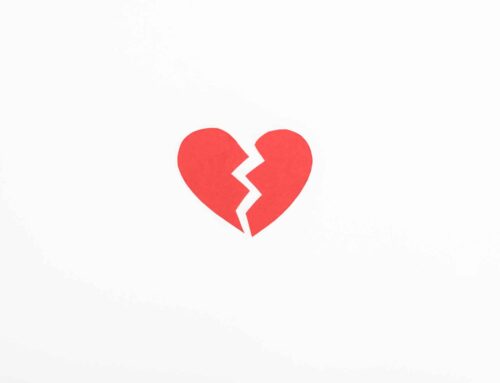11 Signs You’re Falling Out Of Love
What’s the difference between love that lasts and love that fades over time? Is there a secret to ensure that you don’t fall out of love? Why do some couples keep the romance alive while others drift apart?
As Holistic Dating Coaches it’s important for us to teach our clients how to keep love alive once they’re with their beloved life partner. Since 2009 we’ve been helping singles identify and transform their hidden blocks to love — that alone is not enough!
Lasting love isn’t something that just happens when you meet some mystical “right” person. Love requires you regularly take actions to nurture it. Falling out of love isn’t a mysterious process that just happens, it’s the result of ignoring issues that come between you.
It’s not inevitable or destined for you to fall out of love. If you recognize the signs that the spark is fading, you can rekindle your love and strengthen the connection between you.
11 Signs You’re Falling Out Of Love
-
You’re Avoiding Conflict
Conflict is inevitable in an intimate relationship. This doesn’t mean that it has to blow up into an argument, but you’ll have to deal with challenges, miscommunication, and differences. The problem is most people are conflict-avoidant and this can cause you to fall out of love.
When you avoid conflict, you create an emotional distance between you. Issues tend to fester, and like a volcano eventually erupt. This type of argument gets ugly and doesn’t go well; neither of you feels good about what happened so you begin the cycle again and go back to avoiding conflict. Or you just sit on your grievances and never address them, letting the resentment build up between you.
To avoid falling out of love and break the cycle address issues as they arise instead of avoiding them. Rather than looking for agreement simply be authentic and share how you feel. Use “I” language to avoid pointing the finger at your partner. Ultimately, conflict can lead to a deeper connection if you take responsibility for your part and steer clear of blame.
-
You’re In A Never-Ending A Power Struggle
Every relationship will progress from the romance stage to the power struggle stage. When the chemical high of falling in love wears off, you’re left with a bit of a hangover. A lot of people mistake this for falling out of love. Hence, the phrase, “I love you but I’m not in love with you.”
The power struggle stage allows each person to individuate within the relationship. It can be a battle of egos with both of you fighting to be right. You want your partner to agree with you or see things your way. It feels like the two of you are at odds and you’re in a tug of war. It’s easy to think that because you’re in a power struggle that this is not your person. This stage is a natural occurrence and not a sign that you’re falling out of love. No couple will skip the power struggle stage of a relationship!
Instead, let go of the rope and make a choice to put aside your ego. It only takes one person to change the dynamic and find your way out of the power struggle stage. Breaking the cycle occurs when you both choose the relationship over your ego desires and create a new habit of deferring to one another’s strengths.
-
You’ve Sacrificed Your Needs
Putting aside your needs to keep the peace and avoid conflict at all costs will only breed anger and resentment. You can’t go without your needs being met for too long; it will eat away at your self-worth and your happiness.
Going into sacrifice as a strategy to earn love causes an imbalance in the relationship. Only one person’s needs are being met causing an imbalance that is not sustainable and eventually you’ll fall out of love.
To avoid growing resentment and falling out of love, speak up and ask for what you need. This risk will pay off because you can connect emotionally with your partner. They may surprise you and gladly step up to meet your needs. Someone who loves you wants you to feel happy and is more than willing to give you what you need.
-
You’re Not Expressing Your Feelings
Whether you’re feeling loving toward your partner or frustrated, if you don’t say something they won’t know. Emotional intimacy is created by speaking your feelings regularly. You can fall out of love when you don’t connect emotionally and fall into the trap of making assumptions.
Your partner doesn’t come with special mind-reading powers. Just because you’re thinking of your partner or doing things for them, doesn’t mean that they are feeling loved.
Conversely, if you are upset about something don’t swallow your feelings. Speak up. Keep your emotional sink clean by regularly cleaning up your disagreements and sharing your upset, no matter how minor. You’ll feel better having expressed it and you can use the situation to create stronger emotional intimacy ensuring you don’t fall out of love.
-
You Don’t Value The Same Things
While you don’t need to share the same hobbies or interests for love to grow between you, you do need to be on the same page about the important things in life. If you have different goals or conflicting visions for your relationship, you’ll end up feeling alone. Also, when you don’t value the same things, it’s more difficult to to get back on the same page creating further disconnection.
The spark of chemistry when you first meet will fade quickly if you don’t share values. To avoid falling out of love over time, make sure you don’t rush to exclusivity in the beginning. Date with discernment, move forward slowly, evaluate over time and choose a partner wisely using your head as well as your heart.
-
You’ve Taken Off Your Rose-Colored Glasses
During the high of the romance phase of a relationship, you’ll see your partner in their best light and ignore the things that could be an issue. You end up giving this person you barely know the benefit of the doubt before they’ve earned it. Once the romance fades, you may notice that you’ve become critical of your partner.
It’s like you took off your rose-colored glasses and now you see your partner in the harsh light. You’ve stopped giving them the benefit of the doubt, even though they’ve probably earned it. Focusing on all the small things that annoy you about your partner will cause you to fall out of love.
Instead, don’t wear rose-colored glasses from the beginning. Wait until your partner has proven themselves and earned the benefit of the doubt. Once you’ve made it through the power struggle stage together you can put your rose-colored glasses on and focus on what you love about them.
-
You’re Complaining To Others Rather Than Speaking To Your Partner
A common way to fall out of love is to complain to your friends and family about your partner. You end up receiving advice that’s not helpful and judgments that don’t take the whole situation into account. Most complaints happen because you’re looking for agreement or ammunition to defend your point of view. You’re not in a war with your partner and you don’t need to seek allies to support your side.
Sharing your intimate details or disagreements with others breaks the trust between the two of you and can exacerbate feeling disconnected. An intimate relationship is sacred and should be handled with kid gloves to avoid breaking trust.
The only person you need to talk to when there’s an issue is your partner. Don’t talk behind their back and get advice from your friends about what you should or shouldn’t do. Keep your relationship private and protected from outside influences. If you have any issues that you can’t resolve then seek professional help, not the council of your friends and family.
-
You Have Unrealistic Expectations
In this modern world where people pair up for love rather than security or a family arrangement, it’s common to have an unrealistic expectation of marriage. Believing that with your soulmate you’ll never have any problems or conflicts creates unrealistic expectations of your relationship. Perfectionism can cause you to be overly critical of your partner, holding them to too high of a standard. Or your fear of conflict can trigger you to try to control your partner in times of stress.
Having unrealistic expectations will cause you to fall out of love because no one can live up to a fantasy. All relationships move through five stages and the second one trips people up because no couple skips the power struggle stage. Even with your soulmate, you’ll have misunderstandings, disappointments, and conflicts. Learning to turn those conflicts into a deeper connection is one of the skills for lasting love.
-
You’ve Stopped Making Sex A Priority
In the beginning, you can’t keep your hands off each other. It doesn’t matter how tired or busy you are, it’s easy to find time for sex. As the two of you relax into the mundane day-to-day rhythm of your lives together, it’s harder to find time for intimacy. Or you may find that your love life becomes a little stale.
These transitions don’t have to cause you to fall out of love. You can rekindle the romance by sharing your fantasies or out-of-the-box desires. The biggest erogenous zone is the space between your ears. How you’re thinking about your partner can create a change in your desire for them. Schedule time to connect emotionally as well as physically and your love will continue to grow.
-
Feedback Becomes Criticism
When requests or suggestions start to feel like criticisms, you’re in danger of falling out of love. In your defensiveness, you’re shifting the blame onto your partner for your feelings of criticism, or you take their feedback as an accusation. It becomes impossible for your partner to discuss issues between the two of you.
Speaking how you feel and making requests is important in a relationship. You both won’t come together intuitively knowing what the other wants or needs. Most people share love in the way they want to receive it without being curious about what their partner desires.
Stop taking your partner’s feedback as criticism and get curious about what they need. There is usually a deeper need underneath the request that is putting extra energy into their communication. Or you may have a sensitivity about their suggestion. Taking things personally will create a wedge between you and you’re in danger of falling out of love.
-
You’re Not Dealing With Your Triggers
Everyone has triggers from their childhood wounds. Issues around safety, communication, or personal space can become flashpoints for conflict. When triggered your conscious mind goes offline, and you’re operating from a survival instinct of fight, flight, or freeze.
Your partner is not responsible for your triggers. They weren’t in your life when the circumstances that created them occurred. If you’re blaming your partner for your triggers then you will fall out of love because you don’t feel safe.
Acknowledging your triggers and discussing them with your partner can help create empathy and compassion. Having tools to calm yourself down and becoming a master of your emotional life will allow you to manage your triggers. It’s unrealistic to think you won’t get triggered in a relationship. Being open with each other will create more intimacy and trust between you, allowing you to stay connected and not fall out of love.

An intimate romantic relationship requires continual care and attention. Love doesn’t last because of luck, fate, or destiny. Love lasts because you don’t take your partner for granted, stay curious about them, and regularly take risks to be authentic.
If you want to know how to create a relationship that stands the test of time, you’ll need to know the natural progression that every relationship goes through. We call this roadmap, “The 5 Stages of Relationship.’’ Download this free report here and discover the skill set for lasting love.
About the authors

Orna and Matthew Walters are soulmate coaches and prolific writers about love. Finding love, keeping love, healing from heartbreak, bringing in your beloved and more. They have been published on MSN, Yahoo!, YourTango, Redbook, and have been featured guest experts on BRAVO’s THE MILLIONAIRE MATCHMAKER with Patti Stanger, and as guests with Esther Perel speaking about love and intimacy.








